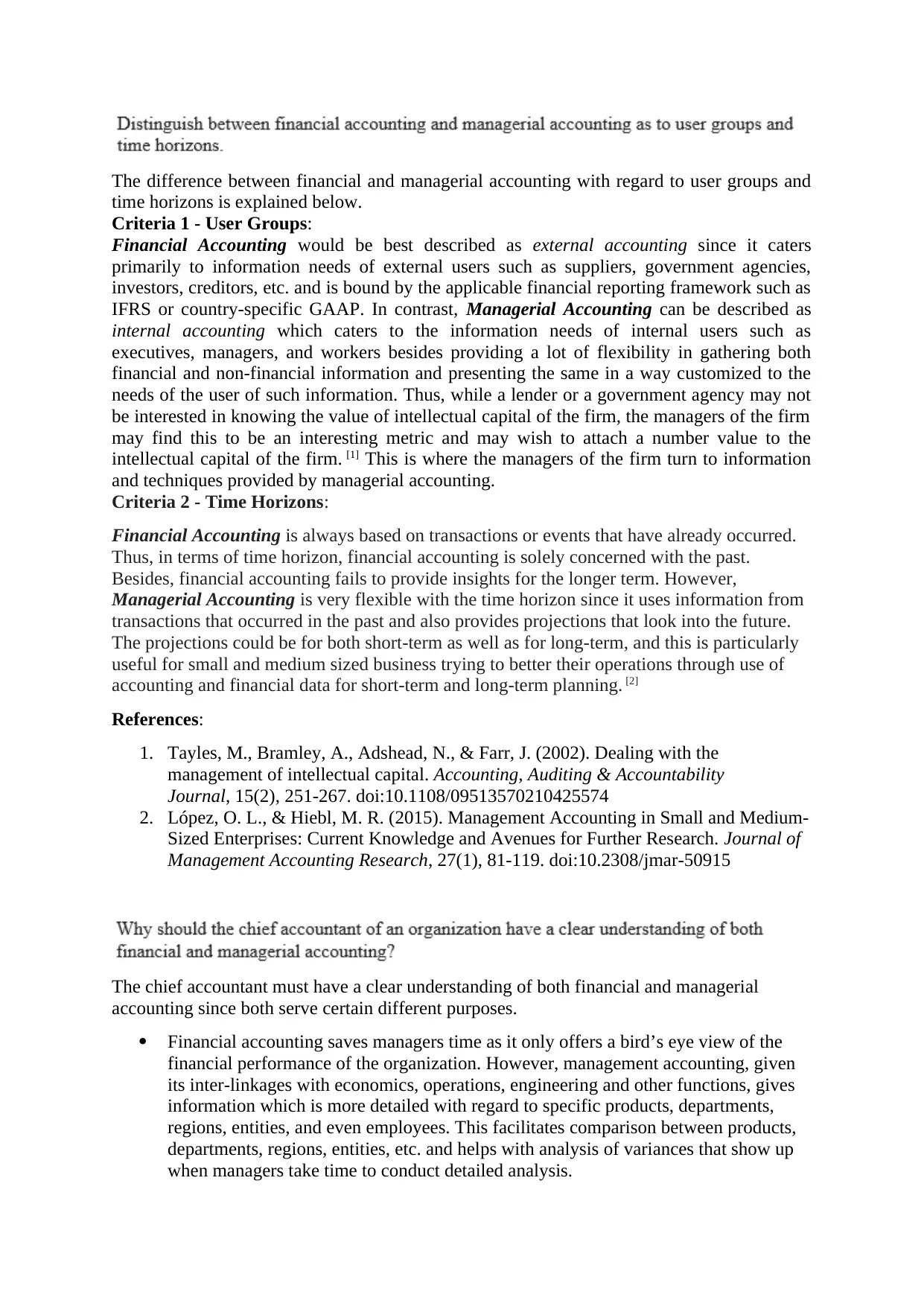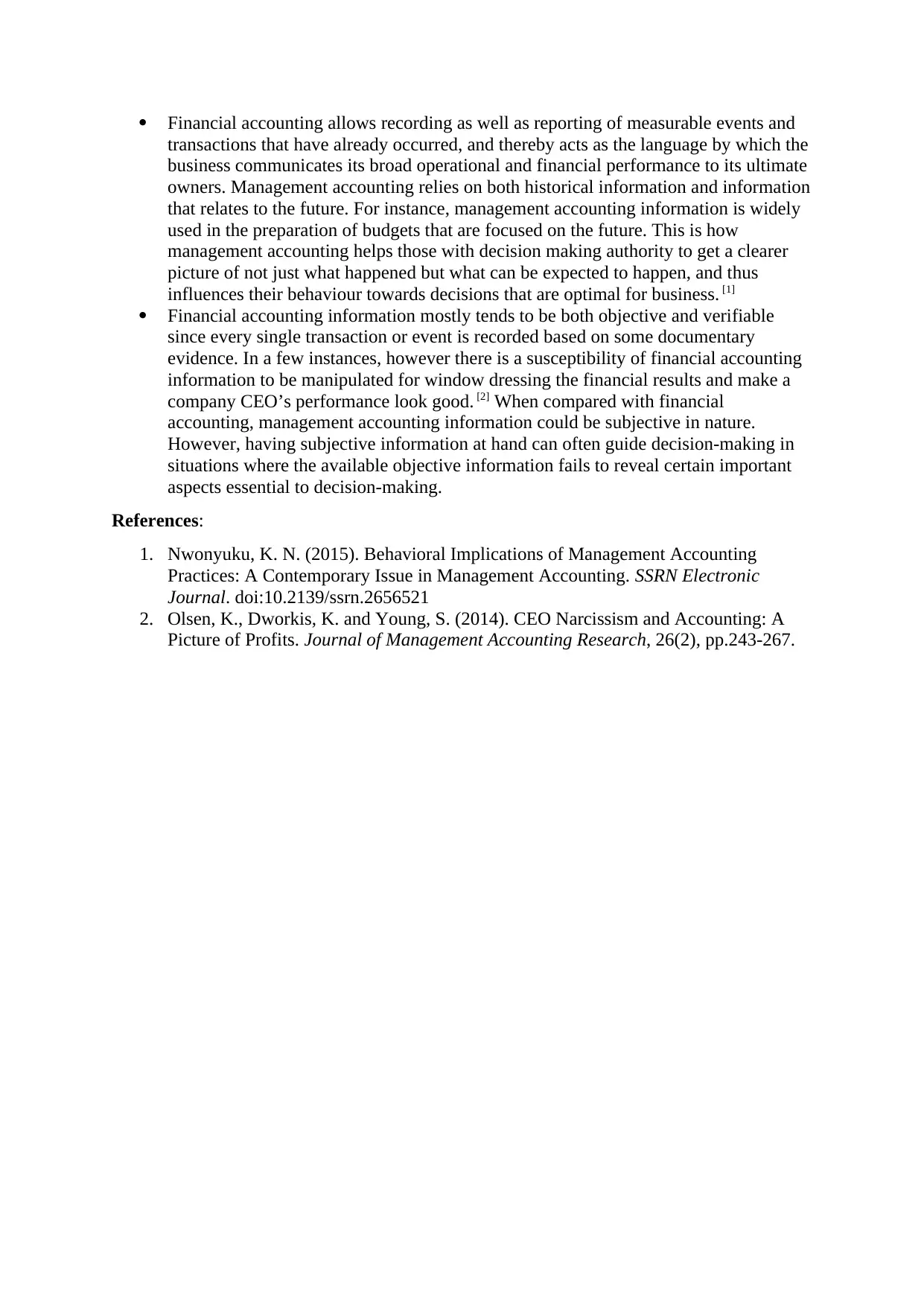Detailed Comparison: Financial Accounting vs. Managerial Accounting
VerifiedAdded on 2019/09/30
|2
|830
|230
Homework Assignment
AI Summary
This assignment provides a detailed comparison of financial and managerial accounting, highlighting their key differences concerning user groups and time horizons. Financial accounting, primarily serving external users like investors and creditors, adheres to established financial reporting frameworks and focuses on past transactions. In contrast, managerial accounting caters to internal users such as managers and executives, offering flexibility in gathering both financial and non-financial information, and presenting it in a customized manner. Managerial accounting also considers both historical data and future projections, making it useful for short-term and long-term planning. The assignment references academic sources to support the analysis, emphasizing the distinct roles and applications of each accounting type within an organization. Financial accounting provides a broad overview of financial performance, while management accounting offers detailed information for specific products, departments, and regions, aiding in variance analysis and decision-making. While financial accounting information is generally objective and verifiable, management accounting information can be subjective, offering valuable insights for decision-making when objective information is insufficient.
1 out of 2








![[object Object]](/_next/static/media/star-bottom.7253800d.svg)